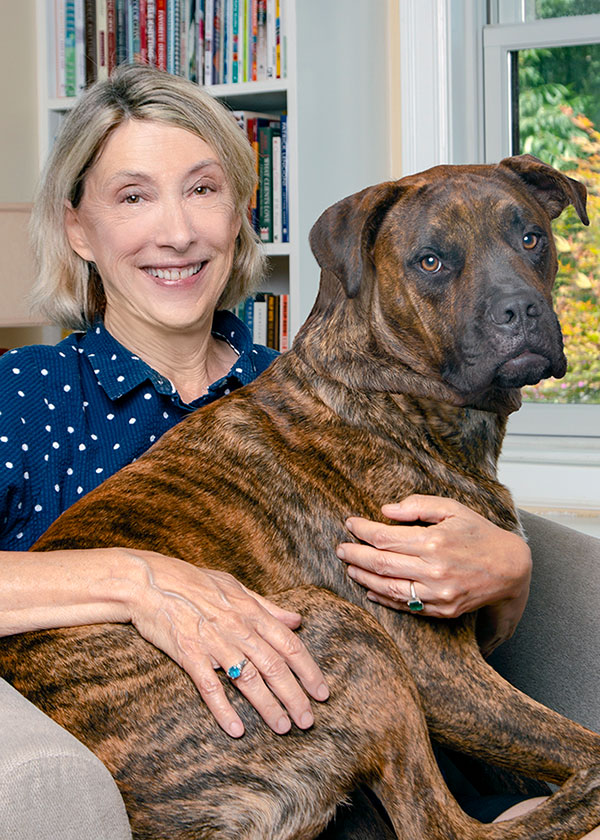Puppy fostering is an incredible labor of love. Caring foster puppy parents who are dedicated to transforming the lives of individuals with disabilities are critical to the success of future service dogs. If you have ever considered bringing home a rescue dog from a shelter, and if you meet the requirements, you may be qualified to foster a service dog, helping him or her to become one of the most important parts of another individual’s life.
Putnam Service Dogs works with local volunteers who help raise, train, and socialize rescue puppies who may go on to change lives for the better. Our dedicated puppy raisers and in-house trainers offer caring expertise and support to help you better understand what to expect during the first week of puppy fostering.
The Importance of Fostering a Puppy for Service Dog Training
Individuals with a wide range of disabilities, such as post-traumatic stress disorder (PTSD) or mobility issues, rely on service dogs throughout their lives. Service animals often improve their recipients’ psychological and social wellbeing by providing a sense of independence, and improvements in mental and social health often lead to economic benefits, as well. Sadly, there is a lack of qualified service dogs throughout the United States, and though dedicated, charitable organizations are doing their best to change this, there are simply not enough volunteers who are open to fostering a puppy.
As a volunteer, when you choose to foster a service dog in your home, your gift leaves an indelible mark on many lives. Aside from improving the recipients’ quality of life in many ways, you also change the dog’s life for the better by providing him or her a loving, caring, and safe home where the incredible bond between humans and dogs can shine.
Puppy fostering can change your life, as well. Bringing home a rescue dog and preparing him or her for the daily routine of living in the real world is an incredibly rewarding and fulfilling experience. In fact, many puppy raisers go on to raise additional puppies over the course of several years just to have the heartwarming experience all over again. Making a difference feels good, and it impacts everyone involved.
How Long Do You Foster a Dog for Future Service?
Puppy fostering is an important commitment required for raising well-behaved and social service animals, but not everyone has the ability to commit to the same length of time. In most cases, you can choose a commitment time between six and 18 months. Bond building is a huge part of fostering a service dog, and a six-month minimum ensures there is plenty of time for that bond to develop and grow.
No two puppies are the same, and some may require a longer commitment than others. Organizations that consider their puppy fostering volunteers’ needs and limitations – as well as the needs of the puppies – can match you with the puppy who is most likely to flourish in your care.
Bringing Home a Rescue Dog
On day one of your puppy fostering journey, you will probably feel a mix of nervousness and excitement. This is a perfectly normal response to adding a new member to your family, and chances are good that your puppy feels much the same way. When bringing home a rescue dog, remember that the puppy has spent all of his or her life with parents, siblings, and/or other animals in a shelter. Making the switch to a home environment with different sounds, different smells, and different people can be overwhelming at first. With patience and routine, your new puppy will soon feel right at home.
Setting a Service Dog Up for Success: The First Week of Fostering a Puppy
Working with an organization that focuses on building a community is very important because the first week of fostering a puppy is often filled with ups and downs. From behavioral issues to potty training, challenges are common (and normal), and reaching out to a community of other like-minded and experienced puppy fostering volunteers, trainers, and experts can make all the difference.
Meeting the Trainer
During the first week, you will likely meet with a qualified trainer twice. Hour-long weekly classes during the first 12 months of puppy fostering are required, and puppy raisers find these outings invaluable for learning how to train the puppy and building a support network. The trainer will also visit your home once each week for private training sessions, ensuring that you and your foster puppy get the one-on-one time you both need to succeed.
Behavior and Potty Training
Though some puppies may already know a few basic commands or use the potty in designated areas, when you are fostering a puppy, you should expect a few mishaps during the first week. This is common, and it does not mean that you are doing a bad job. Puppies are learning and acclimating, and it is up to you to show them the difference between good and unwanted behavior. Building a routine – starting with the very first day – is the very best thing you can do to make puppy fostering easier for you and your puppy.
Tips for Making Puppy Fostering Fun and Rewarding
Although the first week can (and likely will) be a challenge for you and your puppy, there are several things you can do to make the experience more fun and rewarding for both of you. The following seven tips can make a world of difference:
- Lean On Your Support Network. At first, fostering a puppy can be exhausting and nerve-wracking, and many first-time foster pup parents worry that they are doing something wrong. Reaching out to a supportive community to vent, ask questions, or even ask for advice can alleviate your stress and fears, making caring for a service dog puppy a far more fulfilling experience.
- Give the Puppy Plenty of Time to Adjust. Acclimating to a brand-new environment can be difficult for a puppy, and for the first week, it may be helpful to let the puppy set the pace – at least, for the most part. Don’t force the puppy to allow cuddles or affection, for example, but do stick to a routine for potty time, play time, and walk time. Furthermore, be sure to enforce house rules from the start. If your puppy is chewing, for example, use gentle redirection to correct him or her.
- Be Patient. Being patient is one of the best ways to make fostering a puppy a more rewarding experience. Having too many expectations can lead to feelings of inadequacy or frustration. Remember that puppies are the babies of the dog world, and like babies, they are learning and absorbing everything around them. Be patient, and lead them with kindness and love.
- Offer Praise as a Reward for Good Behavior. The organization you work with when fostering a puppy can provide recommendations when it comes to the type and frequency of treats, and these should be offered during short training sessions. Aside from food rewards, though, many puppies are motivated by praise. When your puppy promptly follows a command or potties in the designated area, emphatic praise is an excellent reward, and you will love the puppy’s reaction to it. Remember: positive reinforcement is a powerful motivator, and it is essential for future service dogs.
- Don’t Expect Much Training at First. Training is a big part of fostering a puppy, but during the first week, most of your puppy’s bandwidth is geared toward simply acclimating. Waiting for your puppy to feel safe and comfortable in your home to begin with more formal training sessions often leads to better results.
- Get to Know the Puppy’s Personality. Like people, puppies have their own individual personalities – even as puppies. They have things they like, things they dislike, favorite toys, and a favorite place to be petted. Take the first week to really get to know your puppy inside and out, including cues that he or she may be getting distracted or frustrated. When it comes time for training, these cues can save you and your puppy time and effort.
- Foster a Service Dog with a Reputable Organization. Finally, working with a reputable organization with an accessible trainer to foster a service dog can make the difference between an incredibly fulfilling fostering experience and a stressful one. When issues arise, the ability to pick up the phone for invaluable advice is crucial. Happy puppy foster parents lead to happier, better-adjusted service dogs.
Fostering a Puppy with Putnam Service Dogs
At Putnam Service Dogs, our puppy raiser volunteers’ precious gift of time and love is invaluable. These incredible individuals have changed their own, their dogs’, and the recipients’ lives for the better in many ways. If you want to make a real, tangible difference in the lives of people in need, consider working with us by fostering a puppy. With access to skilled trainers and a caring community, we do everything we can to facilitate success for everyone. Apply to foster a service dog puppy with Putnam Service Dogs.






